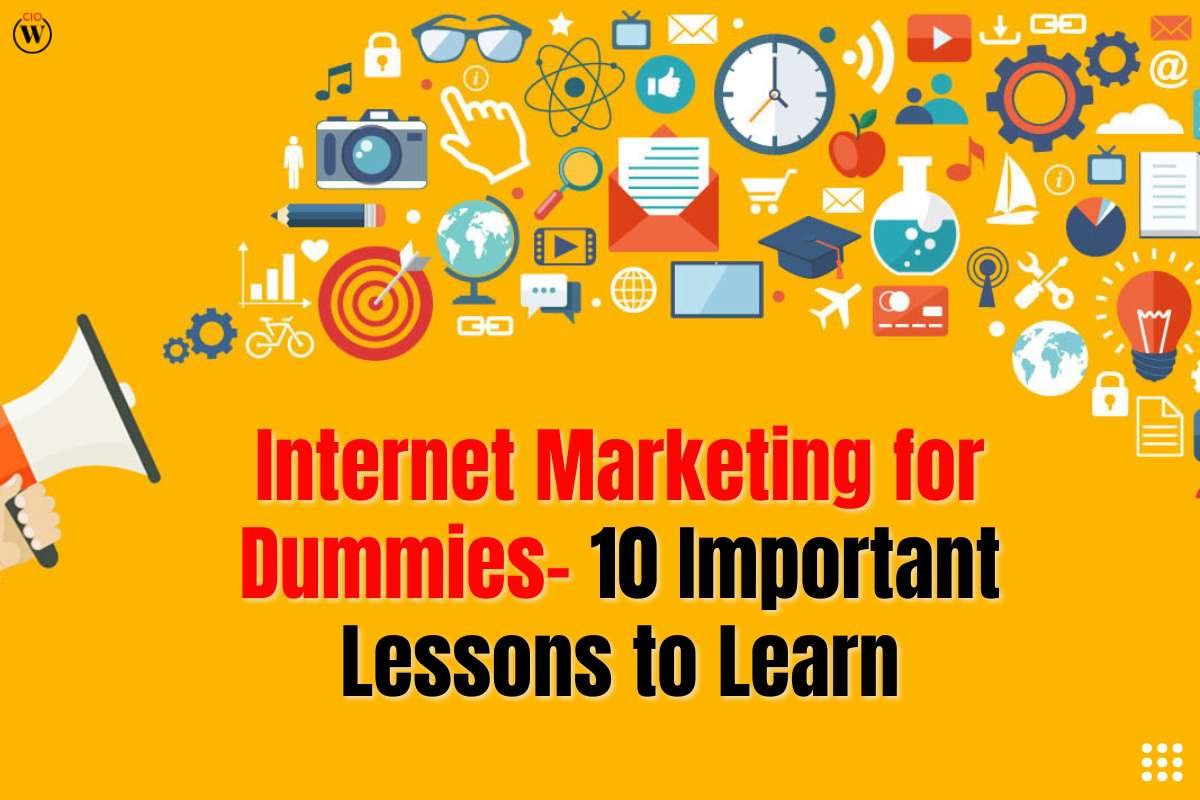As the world continues to move towards digitalization, the importance of internet marketing can never be overstated. The internet has revolutionized how businesses reach out to their customers, and it has become a critical aspect of any business’s marketing strategy. In this article, we will explore 10 important lessons that can help anyone looking to get started with internet marketing.
Here are 10 Important Lessons to Learn about Internet Marketing for Dummies;
1. Understand your target audience
The first step in any marketing strategy is to identify your target audience. Who are you trying to reach, and what are their needs and interests? By understanding your target audience, you can tailor your marketing message to resonate with them and improve your chances of success.
One of the best ways to understand your target audience is by creating buyer personas. A buyer persona is a fictional representation of your ideal customer. It includes information such as age, gender, income level, education level, and interests. By creating buyer personas, you can better understand the needs and interests of your target audience and create content that is tailored to their specific needs.
2. Develop a strong online presence
In today’s digital age, having a strong online presence is essential for any business. This includes having a website, social media accounts, and other online platforms where your customers can engage with your brand. It also means having a healthy respect or CRO, the methodology known as conversion rate optimization, ensuring more visitors stay engaged and interact with your website.

Your website should be user-friendly, easy to navigate, and optimized for search engines. Your social media accounts should be active and engaging, with regular updates and interactions with your followers. By developing a strong online presence, you can increase brand awareness, attract new customers, and build a loyal following.
3. Create high-quality content
Creating high-quality content is essential for any internet marketing strategy. Your content should be informative, engaging, and relevant to your target audience. This can include blog posts, videos, infographics, and other types of content.
When creating content, it’s important to focus on quality over quantity. Your content should be well-researched and provide value to your audience. By creating high-quality content, you can establish yourself as an authority in your industry and build trust with your customers.
4. Utilize search engine optimization (SEO)
Search engine optimization (SEO) is the process of optimizing your website to improve its ranking on search engines like Google. This involves optimizing your website’s content, keywords, and other factors to improve its visibility on search engine results pages (SERPs).
By improving your website’s SEO, you can increase organic traffic to your website, which can lead to more leads and conversions. Some key aspects of SEO include keyword research, on-page optimization, link building, and technical SEO.
5. Leverage social media
Social media has become a powerful marketing tool for businesses of all sizes. By leveraging social media platforms like Facebook, Twitter, and Instagram, you can reach a wider audience and engage with your customers in real-time.
When using social media for marketing, it’s important to choose the right platforms based on your target audience. You should also focus on creating engaging content that encourages likes, shares, and comments. Social media can also be used for paid advertising, which can be a cost-effective way to reach new customers.
6. Invest in paid advertising
Paid advertising can be a powerful way to reach new customers and increase conversions. Platforms like Google Ads and Facebook Ads allow you to create targeted campaigns that reach your ideal customer based on factors like age, location, and interests.

When investing in paid advertising, it’s important to set a clear budget and track your results carefully. This will help you to optimize your campaigns and get the most out of your investment.
7. Use email marketing
Email marketing is a cost-effective way to reach your customers and keep them engaged with your brand. This can include newsletters, promotional emails, and other types of email content.
When using email marketing, it’s important to focus on creating engaging content that provides value to your subscribers. You should also segment your email list based on factors like interests and buying behavior to ensure that your messages are relevant to each subscriber.
8. Monitor and analyze your results
One of the most important aspects of internet marketing is monitoring and analyzing your results. This can help you to identify what’s working and what’s not, and make adjustments to your strategy accordingly.
There are many tools available for monitoring and analyzing your internet marketing efforts, including Google Analytics and social media analytics tools. By tracking metrics like website traffic, engagement, and conversions, you can get a better understanding of the effectiveness of your marketing strategy.
9. Stay up-to-date with industry trends
The internet marketing landscape is constantly changing, and it’s important to stay up-to-date with the latest industry trends and best practices. This can include attending conferences and webinars, reading industry blogs and publications, and networking with other professionals in your field.

By staying up-to-date with industry trends, you can ensure that your marketing strategy is relevant and effective.
10. Be patient and persistent
Finally, it’s important to remember that internet marketing is a long-term strategy that requires patience and persistence. Results may not happen overnight, but with consistent effort and a focus on providing value to your customers, you can build a successful online presence that drives leads and conversions.
BOTTOM LINE
internet marketing is a critical aspect of any business’s marketing strategy. By understanding your target audience, developing a strong online presence, creating high-quality content, utilizing SEO, social media, and paid advertising, and monitoring and analyzing your results, you can build a successful internet marketing strategy that drives results.









